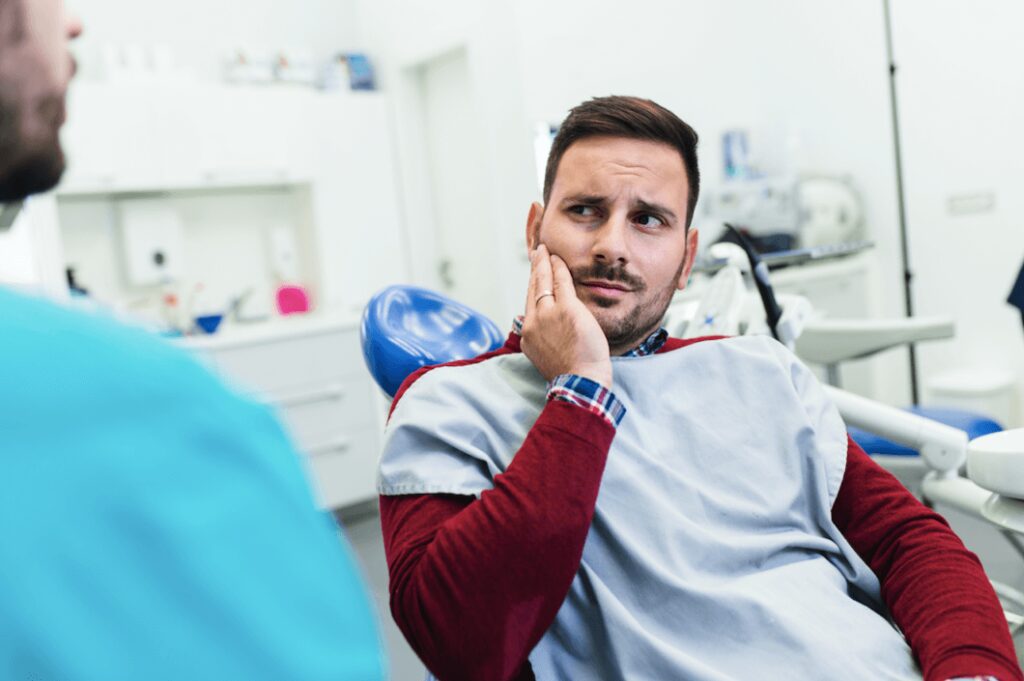Do you wake up with headaches? Does it hurt your jaw when you eat hard or crunchy foods? You may have TMD. Temporomandibular joint disorders (TMD) occur due to stress or injury to the joints that connect the jawbone and skull. Pressure on these joints can lead to tooth, jaw, and facial pain.
Patients with TMD can also clench and grind their teeth, wearing down their enamel and damaging permanent teeth. As part of our restorative dentistry services, we help repair damage caused by TMD, restoring both function and appearance to your smile. Dr. Cynthia Elderkin and Dr. Claudel Giggey provide TMJ treatment in Raleigh, NC, to help patients restore their smiles and reverse painful symptoms. Dr. Giggey can also offer Botox® for TMD patients with headaches and orofacial pain.


Common Symptoms of TMD
There are many tell-tale signs of TMJ disorders:
- Teeth clenching and grinding (bruxism)
- Jaw and tooth pain
- Morning headaches and migraines
- Jaw popping and clicking when eating
- Earaches
- Facial pain
- Tooth wear and sensitivity
Many patients with crooked or missing teeth are more likely to develop TMJ problems because of their bite imbalance. Sometimes, we may recommend that patients see an orthodontist or oral surgeon if bite misalignment impacts their smile.
Treat TMJ Disorders in Raleigh, NC
Our dental office can create customized nightguards for patients who clench and grind their teeth during sleep. Nightguards are made of hard acrylic to prevent patients from chewing on oral appliances. Wearing a nightguard during sleep can alleviate pressure from the TMJ and keep the teeth in place.
Nightguards also prevent further damage or wear to permanent teeth. First, we take dental impressions to send to a lab, which creates a nightguard that covers the upper or lower tooth arch. Then, we ensure that the nightguard and the natural teeth line up comfortably.
We may also recommend physical therapy for patients with TMD. Posture and stress in the upper body can contribute to TMJ symptoms. Patients learn exercises for their arms, shoulders, and back during physical therapy. Patients will also learn how to hold and relax their teeth and jaw.
Botox® for TMJ Disorders
Many patients may only think of Botox as a treatment for facial aesthetics. However, Botox can relieve orofacial pain or pain in the mouth, jaw, and face. Dentists can also provide Botox; Dr. Giggey completed training to provide Botox at Stonehenge. Dr. Giggey can administer Botox for patients with TMD with orofacial pain to relieve their discomfort. Botox is also FDA-approved for patients with headaches and migraines from TMD.
Before Botox treatment, Dr. Giggey finds the areas of the face and jaw where the patient holds tension. Then, she will target these areas and inject Botox into the muscle tissue. Botox is a neurotoxin that affects nerve signals to the muscles. The muscles in the face and jaw relax after Botox injections, relieving painful TMJ symptoms. Botox treatment is quick, painless, and can last for up to 6 months after treatment. Dr. Giggey can also provide follow-up treatment as needed to keep symptoms at bay.
Treat Bite Problems Today
Do you think you may have TMD? Call Stonehenge Family and Cosmetic Dentistry for a nightguard at 919.295.0936. Also, feel free to request your next dental appointment on our website. Please do not hesitate to contact us if you have questions.
